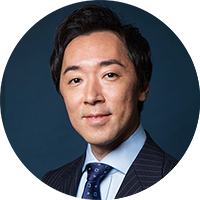Coach's VIEW is a business column authored by executive coaches in COACH A, aimed at providing valuable insights and effective approaches for leveraging coaching to foster organizational and leadership development. The column draws on the latest coaching trends and data, as well as insights from notable global publications on coaching.
A Dialogue Towards Hope

"How could we create more self-initiated challenges?"
I was asked this question by a client I had been engaged in a three-year coaching program on the theme of "challenge". Although the project itself was successful, the client was keen to get some insight as to how to create even better results.
Key to the Challenge
I checked over the report of interviews conducted in this program with other coaches of the project team in order to find any answer to that question. We reviewed each comment on the report, and one of fellow coaches noticed the following;
"A challenge was not generated by one person alone. It was always generated in collaboration with others."
We immediately discussed with the client what we could learn from this program again. The point stated in this comment seemed to be a blind spot for my client as well.
When we call for new challenges within our organization, we inevitably address the individuals within the organization. We tend to expect each individual to take ownership of his/her purpose and responsibility, and to work harder than ever before. However, what we discovered in the report of our interviews over the past three-year program was different from our premise. The challenge did not start with one person, but from collaboration with others.
Collaboration Is the Essence of Human Nature
Adam Kahane, in his book "Collaboration with the Enemy", quotes Lewis Thomas, a physician and researcher, who said as below;
"The urge to form partnerships, to link up in collaborative arrangements, is perhaps the oldest, strongest, and most fundamental force in nature. There are no solitary, free living creatures: every form of life is dependent on other forms." (*1)
Homo sapiens, which seem inferior to many other species in terms of individual capability for survival, have been able to survive until now thanks to their ability to collaborate with others. Having said that, the greatest advantage of Homo sapiens is the ability to collaborate. We could say collaboration is our fundamental nature, since collaboration is embedded deeply in our DNA.
Collaboration seems to come naturally. In fact, humans have been collaborating for a long time. On the other hand, I feel a bit uncomfortable with this statement. I find it difficult to collaborate with others.
Our Premises that Drive Collaboration Frantic
There are several reasons I find collaboration difficult.
"People are self-interested creatures. We should not trust them so easily."
Such a premise may be at the root of my uncomfortable feelings towards collaborations.
We might have concerns like;
"I wonder if they really understand who I am and what I intend, or if we will not be able to understand each other."
"Can we overcome the differences in values and culture, and the biases that arise from these differences?"
"Once we disagree in any situation, another person would be superior in position, and I will be in a disadvantageous situation."
These are probably some of the premises and fears I carry in my mind that would probably make me feel insecure. I keep holding these premises so that it stops me from moving forward to have collaboration with others. How about for you? What premises do you have in mind?
Challenge by Rutger Bregman
Here is a book written by Rutger Bregman, "Humankind: A Hopeful Future". His theory in his book gave me a challenge to face my premise. His conclusion says;
"That most people, deep down, are pretty decent." (*2)
Bregman says that our fundamental nature is never selfish or aggressive. He believes that the latest evidence in psychology, biology, archaeology, anthropology, sociology, and history shows that we have been manipulated by incorrect self-images for thousands of years. Indeed, we may be inherently nice and altruistic, as many historical cases, including the Great East Japan Earthquake, have shown.
In the hunter-gatherer era, Bregman says, people were more equal, tolerant, and cooperative with each other than they are today. The society where we live now is different from a hunter-gatherer environment. Now it is far more complex, and we are expected to accomplish something together with whom we do not know each other yet. Yet if human nature has not been changed, we may simply need to know a little more about each other, because we might have stacked in warding each other off as selfish beings.
At least, I myself cannot have any confidence in understanding in many cases what others want, for what purpose they are here, what they like, what they dislike, and so on only by an instant observation of others.
A Hopeful Future
Perhaps many of you might have experienced something like when you talked to someone about something, he/she easily accepted your ideas and thoughts without any concern.
Talking to a person means having a dialogue with a person. One listens to the other. Even if there are some differences, they try to understand each other. Through this process, mutual understanding is generated and a rapport of trust is established. Common goals and new solutions may emerge here. In addition, the attempt to understand differences may even lead to a shift in one's own views, thoughts, attitudes, and actions.
Bregman says that everything will change if we discard our outdated premises and shift to trust people in front of us, that is, we believe that most people are kind and generous.
I also would like to add "Let's jump into the dialogue." If we can do that, what kind of future will come to us?
A future where diversity is accepted among people and people understand each other in a better way.
A future in which we share a vision not to compete with others, but to prosper together in harmony.
A future where people can transcend differences, cooperate more with each other, and find joy and peace of mind together.
What kind of future do you wish for humanity?
【Reference】
*1 “Collaborating with the Enemy: How to Work with People You Don't Agree with or Like or Trust”, Adam Kahane (Author), Riichiro Oda (Supervisor) and Akiko Higashide (Translator), Eiji Press, 2018.
*2 “Humankind: A Hopeful Future, 18 Chapters for Humanity to Create a Good Future”, Rutger Bregman (Author), Kahoko Nonaka (Translator), Bungeishunju, 2021.
*Regardless of profit, non-profit or intranet, secondary use such as copying, diversion, selling etc. is prohibited without permission.
Language: Japanese

